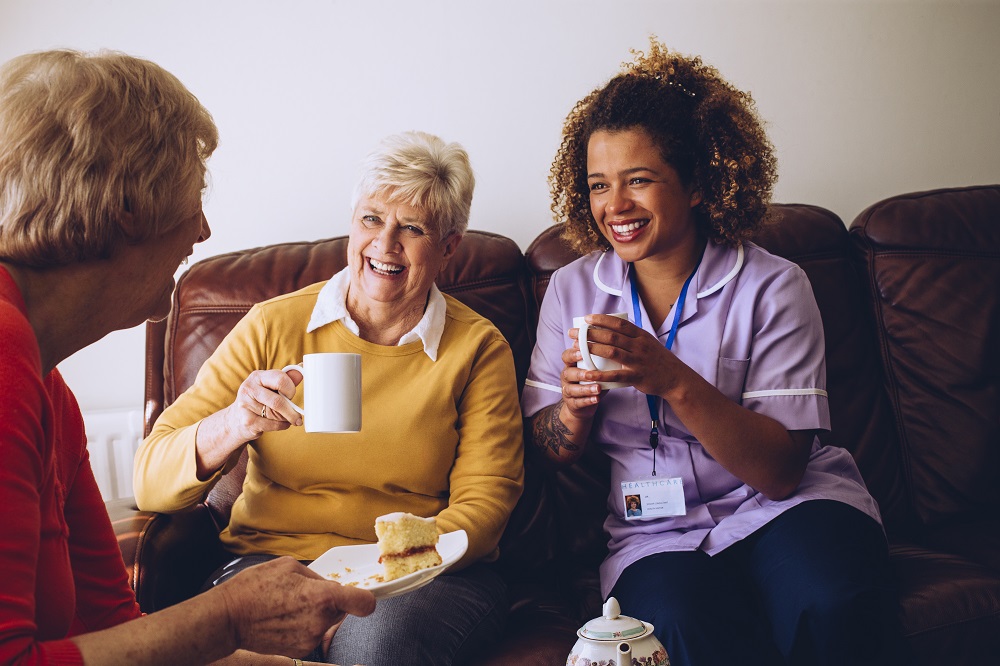For years now, countries around the world have been slowly waking up to the reality that they’re facing a crisis that’s unfolding in slow motion. I’m not talking about climate change (although that is a very real and menacing crisis in its own right). I’m talking about the rapid aging that’s taking place in populations throughout the world.
In places like Japan, the share of the population aged 65 or older is about to reach 30%, and the nation’s birthrate has long slipped below the rate of replacement. Here in the US, we’re heading in the same direction, with our share of seniors already reaching about 17%. From a societal point of view, it means most countries are facing a profound shift in how they go about provisioning healthcare services. In more personal terms, it means an ever-larger burden falling squarely on the shoulders of the young.
The Weight of Responsibility
The numbers are stark: Millennials now make up about 24% of unpaid caregivers in the US, and that number grows with each passing year. It’s a major responsibility that many people never imagined they’d have to take on, and it’s a life-altering challenge to live up to it. On average, it’s a role that includes up to 21 unpaid hours of work per week – and that’s if the person you’re caring for isn’t in need of specialized care.
Like it or not, however, it’s something that the vast majority of millennials will have to contend with sooner or later. To get through it, they should start making preparations now so they won’t become overwhelmed when the time comes. Here’s what they should do.
Make a Caregiver Binder
Although it’s not a pleasant conversation to have with an aging parent or loved one, the first step in preparing to be a caregiver is to assemble a binder with all of the legal and informational documents you’ll need when you have to step into the role. It should include:
- Birth Certificates
- Financial documentation (bank accounts, investment accounts, real estate holdings)
- Social Security information
- Monthly bills
- Medical care information (doctor contacts, medical records, advance healthcare directives)
Make sure to take a detailed look at everything the person you’re caring for now manages
themselves, and include it in the binder. Then, consider making a legal agreement that sets forth your rights and responsibilities, so there won’t be conflicts later.
Learn the Skills You’ll Need
Unless you happen to already work in the medical field, there’s a good chance that you have no prior experience taking care of an elderly person. For that reason, consider gaining certification in the field of care-giving. In the US, you can do this via the American Caregiver Association. If you expect to need more advanced training, you might consider taking a more in-depth course in nursing or a similar vocation. For example, you can take a cert 3 aged care course that will give you a much deeper understanding of what you’ll have to do to care for your charge. Even though the certification is aimed at Australians, it’s the knowledge you want (and it’s still valid if you decide you’ve found yourself a new career).
Plan for the Disruption
Even in the best of circumstances, taking care of another person is time-consuming, and will interfere with your daily life. It’s important to plan ahead for that eventuality as early as possible so as to minimize the disruption. Depending on where you live, you may be able to take paid leave to care for an aging or sick relative. If not, the Federal Family and Medical Leave Act (FMLA) guarantees most workers up to 12 unpaid weeks off to care for sick relatives. If you have significant savings, you may even want to consider an income investment strategy to keep money coming in when you’re forced to miss work. Although it’s not ideal to put your career on hold, it’s good to have a strategy to deal with the fallout if the situation calls for it.
Don’t go it Alone
The last and most important thing to do is to begin building up a network of people to help you through what’s certain to be a difficult time. Friends, other family members, and caregiver support groups all make for an excellent support system, and you will be glad they’re around for you to talk to. Also, they’ll be able to act as a pressure relief valve of sorts – there to let you know when you need to focus on caring for yourself, too.
If you manage to get all of the above planning done in advance, all that will be left to do is the day-to-day care (which is enough work on its own). Still, you’ll find the experience to be far less intimidating and stressful if all of the groundwork is prepared for you. It still won’t be easy, mind you, but every little bit of preparation helps, and you’ll increase your odds of success in this necessary and near-universal generational task.


